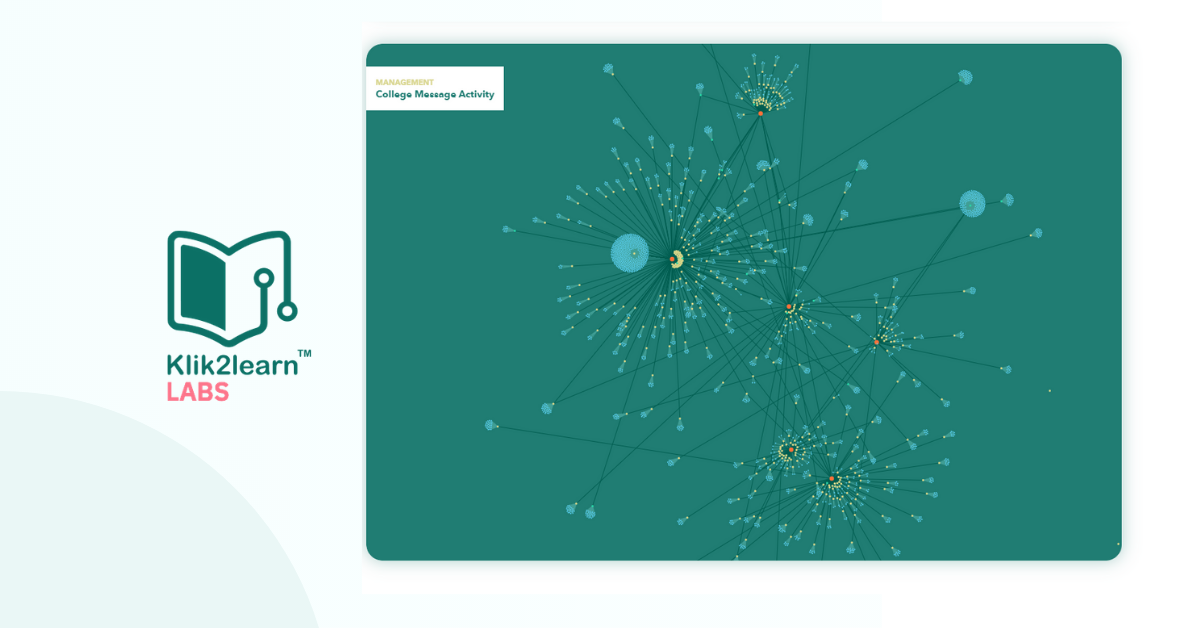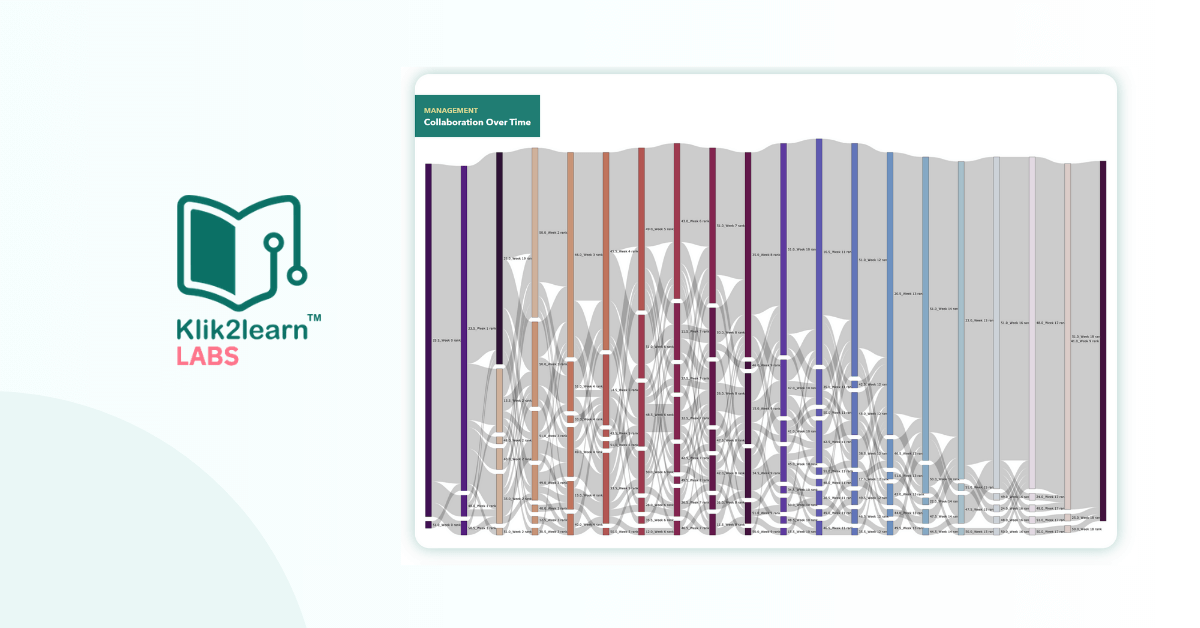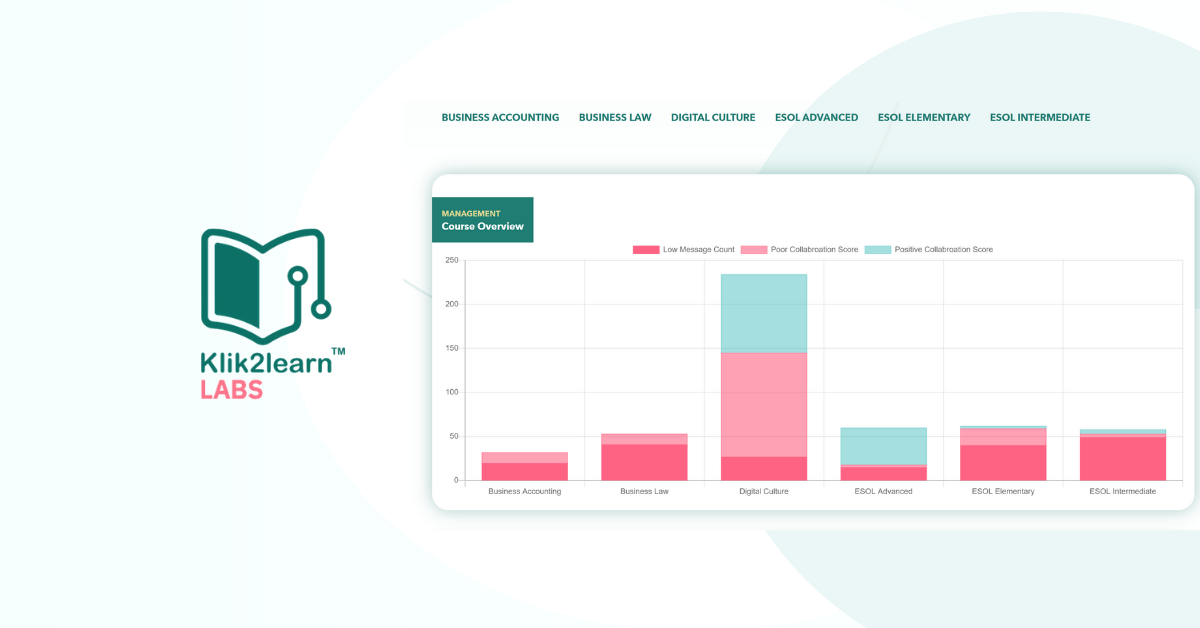
The big data for education project offers new, evidence-based approaches to assessing and predicting not only academic success or drop-out rates, but the ‘soft skills’ so often found lacking by employers.
Just imagine if educationalists were as smart with their use of data as Google or Facebook. Suppose we could use data to help students learn more not buy more?
These are some of the big questions Klik2learn has been investigating since the dramatic, wholesale shift to online learning last year. The company has always taken a digital first strategy with both self-study and blended learning models but as Learning Management Systems clocked up more and more data, it became more important to find out what use was being made of this data – if any.
Last October, against stiff, all-sector competition, Klik2learn won an award to research the use of data analytics to measure impact in online learning. We collaborated with scientists from The Data Lab and simulation experts from the SimVid department of Glasgow School of Art.
Six months later, we have a clear proof of concept and a fascinating set of results which, if pursued, could offer new, evidence-based approaches to assessing and predicting not only academic success or drop- out rates, but the ‘soft skills’ so often found lacking by employers.
Who doesn’t claim on their CV to be a ‘good team player?’ Where’s the evidence? Does it come from simply ‘working in a group?’
Our initial hypothesis was that collaboration leads to better educational outcomes. Over the last six months, we’ve developed a method of measuring collaboration within the online learning space through established data analytics techniques.
“We‘ve come up with statistically significant results that correlate levels of collaboration with educational outcomes and have developed our own machine learning models to deliver the results through dynamic visualisations.” – Ann Attridge, Klik2learn CEO

Chart 1: Klik2learn Labs – Collaboration Over Time by Course
So what’s the point? Well, we’re not talking about a single – issue plug-in to a Learning Management System here. We’re talking about something completely different. What does the social network look like? How do students learn best online? Are the resources we’re providing effective?
It’s not enough, of course, just to find out what’s happening inside Forums and Virtual Learning Environments (VLEs). If you discover, as you invariably will, that perhaps, there actually isn’t much real collaboration going on or that students are not particularly engaged with your learning resources or each other, what, as an educational establishment, do you do about it?
Our second hypothesis was that changes in methodology and resources could improve collaboration and by default, lead to better educational outcomes.

Chart 2: Klik2learn Labs – Collaboration Chart by College Course
These could be minor tweaks to the kind of task students are set or more radical overhauls of the type of digital resources we offer: more immersive, game- based learning as opposed to your standard video, quiz or powerpoint.
A crucial outcome of our analysis was the development of a ‘Collaboration Score’ for each student. How useful might that be, sitting alongside your exam results when you tell an employer you’re a ‘good team player?’
The first phase of our research has come to a successful conclusion. We are however, not at the end of the journey. If any of the questions raised here are of interest, join us. More data and more analysis leads to better insights.